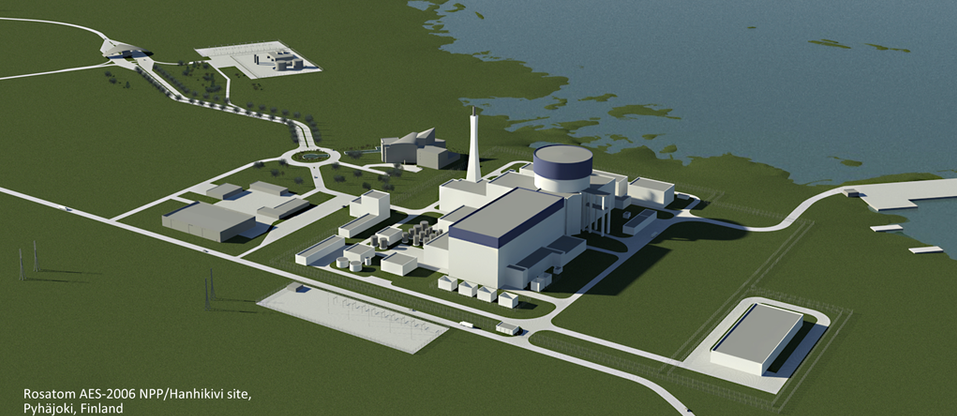
Court decision puts Norway on the hook for massive CO₂ Storage build-out
A ruling by the European Free Trade Association Court that Norway’s continental shelf falls under the European Economic Area Agreement could dramatic...
News

Publish date: October 11, 2018
News
A Finnish-Russian consortium’s plans to build a nuclear reactor in Northwest Finland by 2024 is likely to be delayed, its chairman told Reuters on Wednesday.
The Fennovoima consortium includes Russia’s state nuclear corporation Rosatom, whose involvement has raised concerns in Finland about Russia’s influence in the country.
However, in 2014, the Finnish parliament narrowly approved the project to build the 1.2 gigawatt reactor, which is expected to cost $7.5 billion-$8 billion, to boost domestic energy production.
The delay challenges reports from the official Russian Tass newswire last week that said Rosatom expected the plant would receive its licenses by next year.
“Normally when a plane departs late it arrives late. 2024 would be extremely ambitious if not unrealistic,” the consortium’s chairman, Esa Harmala, told Reuters.
The consortium also includes Finnish power company Fortum and stainless steel maker Outokumpu, among other companies.
Finland’s nuclear regulator STUK last week told Reuters it would make a decision on a license to start construction of the reactor, named Hanhikivi 1, in 2020, pending the provision of documents from its owners, including Rosatom.
These documents have long been a sticking point. In several statements over the past years, officials from STUK have said Fennovoima has been sluggish about providing safety reports for the Russian-built reactor.
One of the regulator’s concerns focuses on the bedrock in Finland’s Pyhäjoki region, where the plant will be built, and whether it is robust enough to sustain a nuclear power plant.
The agency has also been worried about certain lapses among the personnel, and last May told Finnish broadcasters that safety culture in the build must be improved.
Then, last week, Finland’s Prime Minister, Juha Sipila, emphasized that the plant must meet safety requirements before the construction receives its license.
“It is an important project,” Sipila told the Tass newswire, a Russian state mouthpiece. “But it should be remembered that nuclear safety is priority number one as far as the use of nuclear energy in Finland is concerned. That is why the nuclear plant project must meet nuclear safety criteria and this matter is addressed by [our] independent agencies.”
Later last week, STUK said it expected to receive the plant’s safety documentation by the summer of 2019.
Harmala likewise told Reuters he expected that the documents would be supplied by summer next year, as more information is required from Rosatom. That means the consortium may not get STUK approval until 2020 and would struggle to meet its target to start the plant in 2024.
“We are still discussing with the supplier (Rosatom). By the end of this year we will get an updated timetable on the schedule,” said Harmala.
A spokesman for Rosatom, which holds a 34 percent stake in Fenovoima consortium, said that “as of now” there has been no change on the planed startup date agreed by its members.
Rosatom, which has been stepping up an overseas expansion, agreed in 2013 to take the stake in the project, and to supply the reactor.
A Finnish project to build another nuclear power plant in Finland, Olkiluoto 3, is already more than a decade behind schedule, and may face further postponements, plant operator Teollisuuden Voima said last week.

A ruling by the European Free Trade Association Court that Norway’s continental shelf falls under the European Economic Area Agreement could dramatic...

Bellona held a seminar on countering Russian disinformation in the Arctic at the Arctic Frontiers international conference in Norway

Our December Nuclear Digest, reported by Bellona’s Environmental Transparency Center, is out now. Here’s a quick taste of three nuclear issues arisin...

Bellona has launched the Oslofjord Kelp Park, a pilot kelp cultivation facility outside Slemmestad, about 30 kilometers southwest of Oslo, aimed at r...